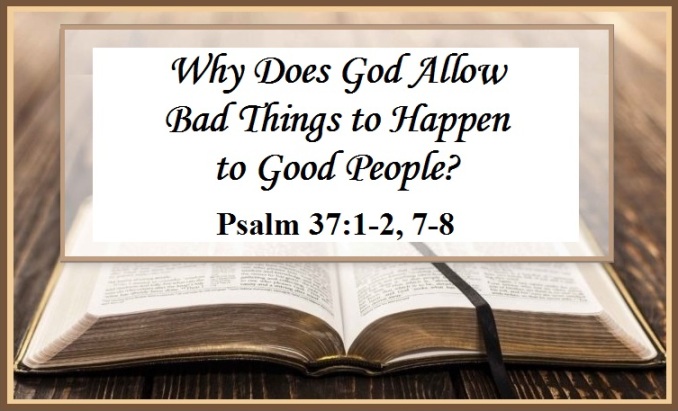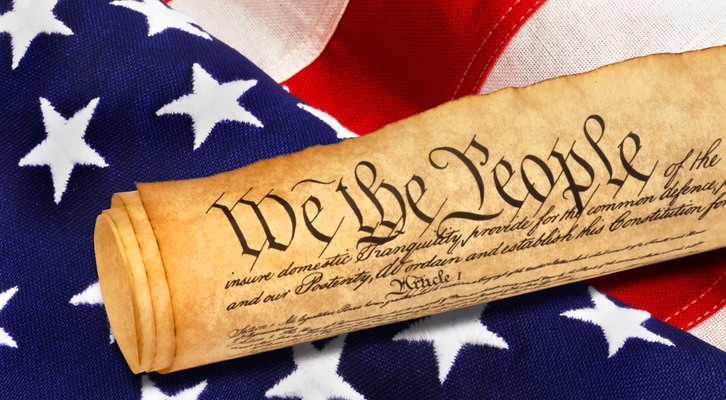(ThyBlackMan.com) Is it wrong to ask why God allows bad things to happen? It’s an age-old question that a lot of religious people find to be inappropriate. In fact, that’s just one of many questions that millions of us were taught to avoid when we were children.
E. Dewey Smith, who pastors a megachurch near Atlanta, has preached about being reared in a home in which “questioning God” was considered to be sinful. Smith, to whom I am not related (as far as I know), was taught that merely asking God questions was disrespectful. The implication was that asking God questions was an affront to His infallibility.
However, as Pastor Smith began studying the Bible on his own, he encountered many instances in which people – not to mention Jesus Christ – seemed to have no problem making inquiries to God. Thus, if asking God questions is sinful, even Jesus Christ Himself would have been a sinner, which would have rendered Him unqualified to be the Savior.

Theologian Thomas Aquinas accepted God’s existence as an inarguable article of faith. For Aquinas, God cannot not exist; God is the First Cause (or Uncaused Cause) from whom everything else came into existence. Aquinas also believed that it is completely acceptable to question God’s nature because it is impossible to comprehend God completely. Inquiring about God’s nature is one way in which humans attempt to get to know God more intimately.
I raise these points because there are so many difficult things going on in our lives, in our nation and in our world. For example, the famine crises in Sudan, South Sudan and Haiti are almost beyond imagination. Sadly, those crises – which are a result of human conflict – barely register in our public consciousness. Where is God in all this?
Many of us who are people of faith often struggle to reconcile our belief in an all-loving, all-present, all-knowing and all-powerful God with the awful reality that we see, and perhaps experience, every day. In short, how could such a God allow human suffering on such a large scale? This is where an examination of the concept of theodicy comes in.
At its simplest, theodicy is how people of faith vindicate God’s righteousness, goodness, faithfulness and superintendency in the face of evil. At its best, theodicy is not a rationalization of God’s inaction; it is an explanation of God’s sovereignty.
Most of the things that people consider to be bad, wrong, and/or immoral are a result of human action or inaction. We generally refer to this phenomenon as free will. Free will exists to some degree even in the most repressive or totalitarian societies. For example, even people who are incarcerated in a maximum-security prison can choose to act kindly with their fellow inmates. Conversely, they can choose to commit acts of violence, even if it is unwarranted. God allows us to choose.
Of course, free will goes well beyond the interpersonal. For example, God does not cause war – even when we fight them in God’s name. Reasons for war may be simple or complex, but what they all have in common is an affirmative decision by one group of people to attack another group of people. And once war begins, it is impossible to predict all the evil that will happen as a result thereof. Regardless of what happens, the problem is with us, not with our Creator.
Skeptical? Consider the following scenario. Suppose that someone gets inebriated and then causes a major auto accident by driving recklessly. Would we blame the automaker? Of course not. It will always be possible to make a safer vehicle. It will never be possible to create a car that is impervious to bad human decisions.
I am grateful that God decided to give us free will. I believe that is related to His decision not to create us to be automatons. In reflecting about God’s nature, I often think about the 70s hit song “I Want You to Want Me” by the group Cheap Trick. God wants us to want Him. That desire, I believe, is rooted in His decision to give us free will.
Yes, this raises many other questions. Those include the role of mental illness and whether God created that, God’s role in natural disasters, and why (in the belief of religious people) God prevents some acts of evil but allows others. Those are all legitimate topics. Perhaps we can explore them in the future. God willing.
Written by Larry Smith

















Leave a Reply